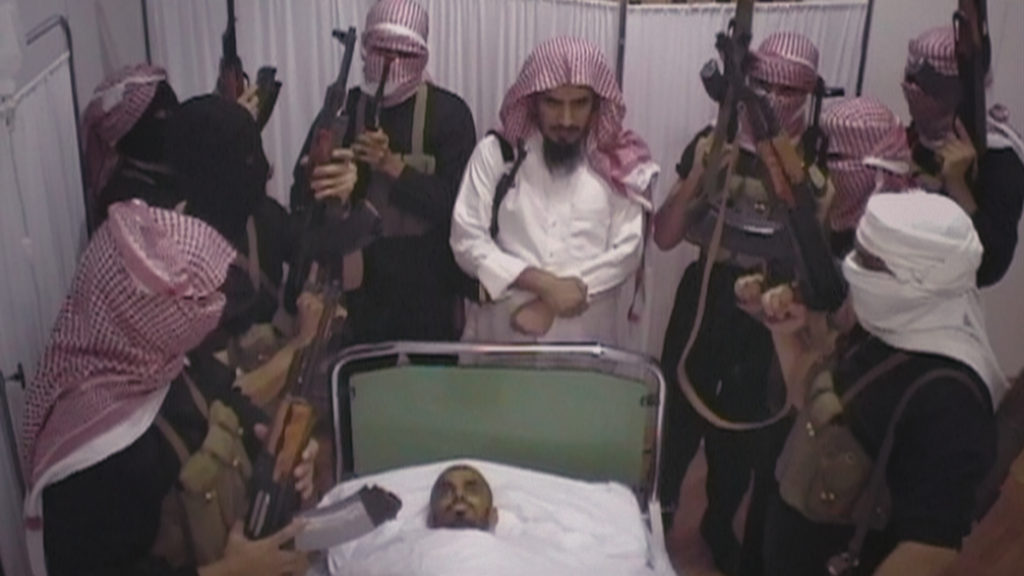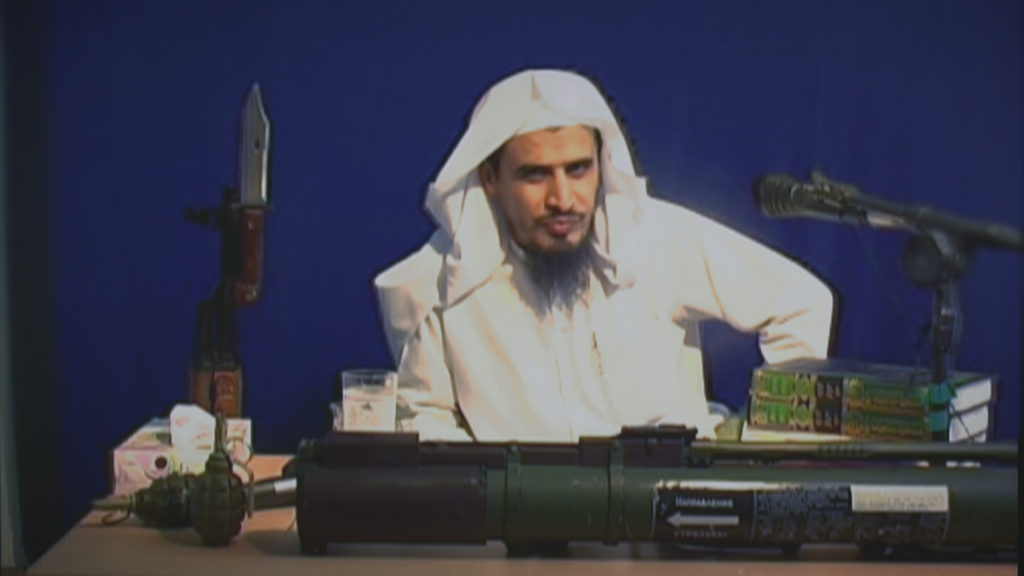
Based on his book of the same title, BBC veteran filmmaker Jonathan Hacker rebuilds the timeline of Al Qaeda’s terrorist attacks in Saudi territory in this documentary made from 500 hours of their own footage seized by the Arab government, completed with some other recordings provided by their security services; shaping up a gripping piece of work that impresses for its craft, but less so for its intentions.
‘Path of Blood’ aims, in the words of its director, at presenting “a humanising portrait of both terrorists and the Muslims who are fighting them.” To that respect, it begins with recordings of a jihadi boot camp in which recruits are being trained. Everyday images of young men playing football or joking around when the “big word” rhetoric of martyrdom and a new Muslim empire are mentioned; followed shortly by some of them, prior to their assigned suicide bombing attacks, rehearsing the words for their obituary videos. Their comments indicate a big deal of naivety and ideological manipulation. Later on the documentary, we will also witness images of much younger kids surrounded by hooded and armed extremists; all of which very powerful and shocking but not enough to really add much psychological insight about the people involved. Like most of this work, it leaves plenty of room for the viewer to fill the gaps with their already existing thoughts, which after almost two decades of post 9/11 War on Terror narratives and Al Qaeda’s chilling use of social media to flaunt its crimes, are likely to be plentiful and firmly established on their mind.

What follows is a recreation of Al Qaeda’s operations in the Arabian peninsula from the 2003 car bombing in Riyadh, to the 2009 suicide bomber attempt to assassinate Prince Muhammad bin Nayef, former ministry of interior and lead of the Saudi counter-terrorist programme. The footage is edited in the shape of a cat-and-mouse prosecution from the secret services to the extremists, after their shocking declaration of war against the country. The success of such format is further guaranteed by the presence of Mark Boal as a co-producer. Boal, who wrote the screenplays of Kathryn Bigelow’s multi-awarded Middle-East based political thrillers ‘Zero Dark Thirty’ and ‘The Hurt Locker,’ brings in the muscle and tension of his American productions to the editing process of the often very graphic and violent images. In the rare moments where footage was not enough for the reconstruction of a particular event, the film resorts to other elements, such as the use of Tom Hollander as the voice of Jihad propagandist. But for the major part, the images speak for themselves with no expert or witness testimonial adding any further context.
The historical value of Path of Blood’s source material and the notable skill which it has been put together with are undeniable. Yet it’s the choices that make it work as a film what also help raising doubts about its purpose. Even if it fully captures the dread and inhumanity of the depicted terrorist attacks, eliciting a strong emotional reaction, that lacking of historical context in the way it showcases Al Qaeda’s operations somehow jeopardises its ideological balance. By avoiding the historical background on why the infamous terrorists revolted against one of the countries which arguably played an original part in its expansion, it feels at times too close to propaganda for the way it praises the Saudi’s anti-terrorist efforts.
PATH OF BLOOD will be released in UK cinemas on Friday, 13th July
